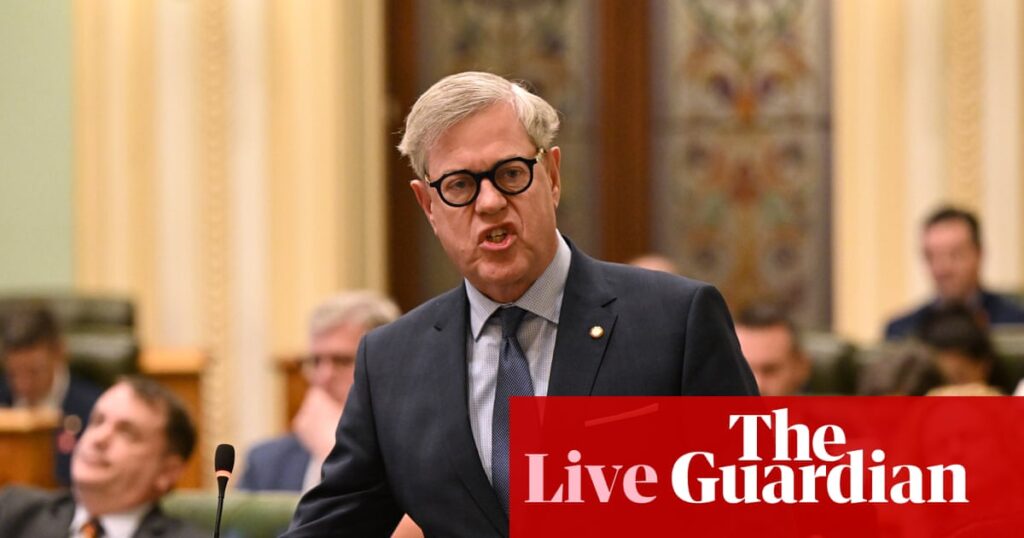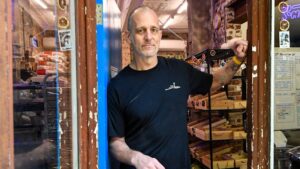
In a controversial move, Queensland has become the first Australian state to ban pill testing, despite warnings from medical experts about potential risks to public safety. The decision comes as the state government eliminates $1.5 million in public funding for pill-testing services, leading to the closure of facilities in Brisbane and the Gold Coast. Meanwhile, in Melbourne, seven teenagers have been arrested in connection with the stabbing deaths of two young boys, Dau Akueng and Chol Achiek, earlier this month.
The Queensland government’s decision to ban pill testing has sparked significant debate. The legal prohibition, passed late Thursday night, makes any pill-testing operations illegal. Health Minister Tim Nicholls stated, “The Crisafulli Government has a zero-tolerance approach to illicit drugs. There is no safe way to take illegal drugs, and this government does not support publicly or privately funded pill testing.”
Medical Community Reacts to Pill Testing Ban
The Australian Medical Association of Queensland has expressed strong opposition to the ban, warning that it could lead to increased emergency department visits, particularly during the summer festival season. AMA Queensland President Nick Yim emphasized the importance of pill testing as a harm reduction strategy. “We are disappointed with the government’s move to ban pill testing. It provides an opportunity for individuals to have a conversation with a health professional about their drug use,” Yim stated.
Despite the ban in Queensland, some pill-testing services or trials continue in other Australian states, such as the ACT, Victoria, and New South Wales. Queensland was previously the first state to establish a fixed pill-testing strategy under the Australian Labor Party (ALP).
Melbourne Stabbing Deaths: Seven Teens Arrested
In a separate development, Victoria Police have arrested seven teenagers in connection with the stabbing deaths of 15-year-old Dau Akueng and 12-year-old Chol Achiek. The arrests followed raids by homicide squad detectives on homes in Melton South, Thornhill Park, Caroline Springs, Sunbury, Wollert, Hillside, and Sydenham. The suspects include a 19-year-old man from Thornhill Park, a 19-year-old from Caroline Springs, an 18-year-old from Wollert, and four minors aged between 15 and 16 from Melbourne’s north-west suburbs.
Police have been conducting a “significant investigation” since the separate incidents on September 6, aiming to identify those responsible and gather all available evidence. Local police have also increased patrols in the Cobblebank area to reassure the community and have engaged with local schools, councils, and community leaders.
Search for Missing Pilot in NSW National Park
Meanwhile, search efforts continue for the pilot of a light plane that crashed in Budawang National Park, New South Wales. The plane, which took off from Bankstown Airport in Sydney, triggered an emergency location transmitter around 4:30 PM on Thursday. The wreckage was spotted from the air near Batemans Bay, but poor weather and challenging terrain have hindered rescue operations. NSW Police have confirmed that the crash site is inaccessible by vehicle or on foot.
NSW’s Electric Bus Initiative
In a positive stride towards sustainability, New South Wales has opened its first fast-charging electric bus depot in Sydney. The Brookvale bus depot, located in the northern beaches, is equipped with Australia’s first gantry-mounted charging systems. These systems use a mechanical arm to connect buses to overhead power lines, allowing them to recharge in 20 minutes to an hour for up to 300 kilometers of travel.
NSW Transport Minister John Graham highlighted the significance of this development, especially in light of recent bus shortages in the northern beaches. “The Northern Beaches experienced the worst of the bus driver shortage and also lost high-capacity bendy buses. Bus passengers here can look forward to a brighter, all-electric future,” Graham said. As of August, greater Sydney had 220 electric buses in operation, with Brookvale supporting 229 buses with its 13 charging stations and eight plug-in chargers.
NSW’s Coercive Control Legislation
New South Wales’ landmark coercive control laws have seen only nine charges in their first year, despite nearly 300 recorded incidents. The Bureau of Crime Statistics and Research (Bocsar) released data showing the impact of the legislation, which criminalizes coercive control in intimate partner relationships. The legislation represents a significant shift in recognizing domestic violence in the state.
Bocsar Executive Director Jackie Fitzgerald noted the complexity of prosecuting such cases, with a median time of 131 days from police report to charge. “The small number of charges highlights the complexity of investigating and prosecuting this form of abuse,” Fitzgerald said. She emphasized the importance of building a prosecutable case under the new legislation, which requires time, evidence, and a deep understanding of behavioral patterns.
As these stories unfold, the implications of these developments will continue to resonate across Australia, from public health and safety to advancements in sustainable transportation and legal reforms.






